Defiant Ones, The (1958)
“You’re married to me alright, Joker — and here’s the ring!”
|
Synopsis: |
|
Genres, Themes, Actors, and Directors:
Review: The shackled men’s initial escape from the prison truck — spurred on by one of the drivers being distracted by Poitier and Curtis tussling — leads to a series of adventures filled with physical challenges (most performed by the stars themselves): … and plenty of random luck, including their encounter with a surprisingly compassionate neighbor (Lon Chaney, Jr.) who doesn’t want to see them lynched: … and seeking refuge with a lonely single mom (Cara Williams) who has the hots for Curtis. The screenplay cuts back and forth between the fugitives’ escape, and the posse that’s out to find them, led by a humanitarian sheriff (Theodore Bikel) and a stern police captain (Charles McGraw) who hold differing opinions on whether to use deadly dogs as part of their hunt. While this is very much a “message film” about racism, it’s effectively filmed, well-acted, and represents an important historical shift in roles for black characters; as such, it’s must-see viewing. Note: Watch for a supporting role by former “Little Rascals” star Carl ‘Alfalfa’ Switzer [see center figure] as a member of the citizen posse: Notable Performances, Qualities, and Moments: Must See? Categories
(Listed in 1001 Movies You Must See Before You Die) Links: |
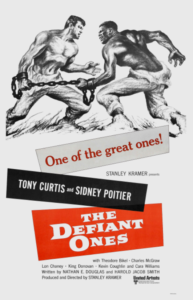
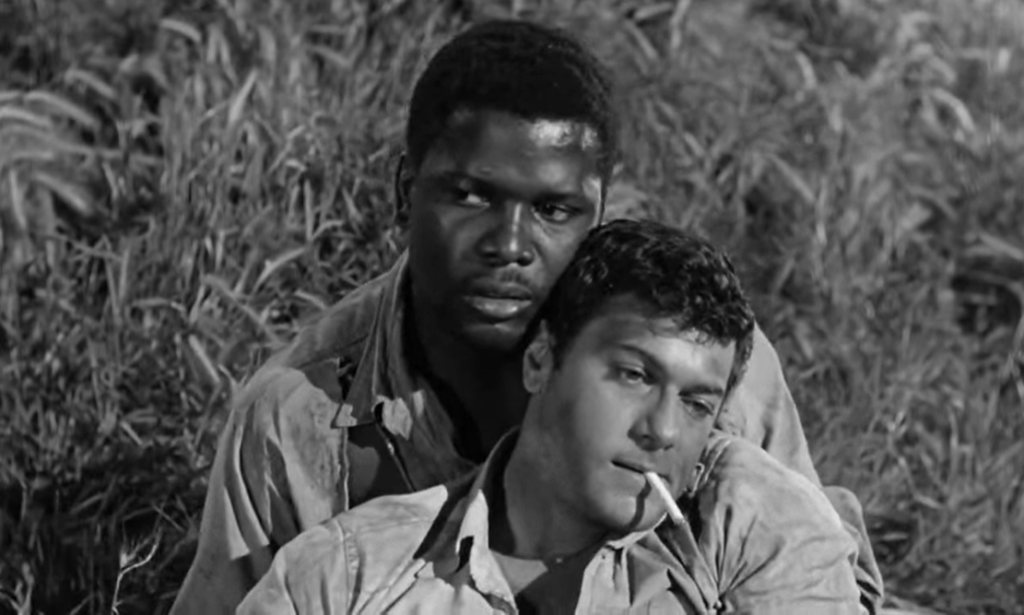
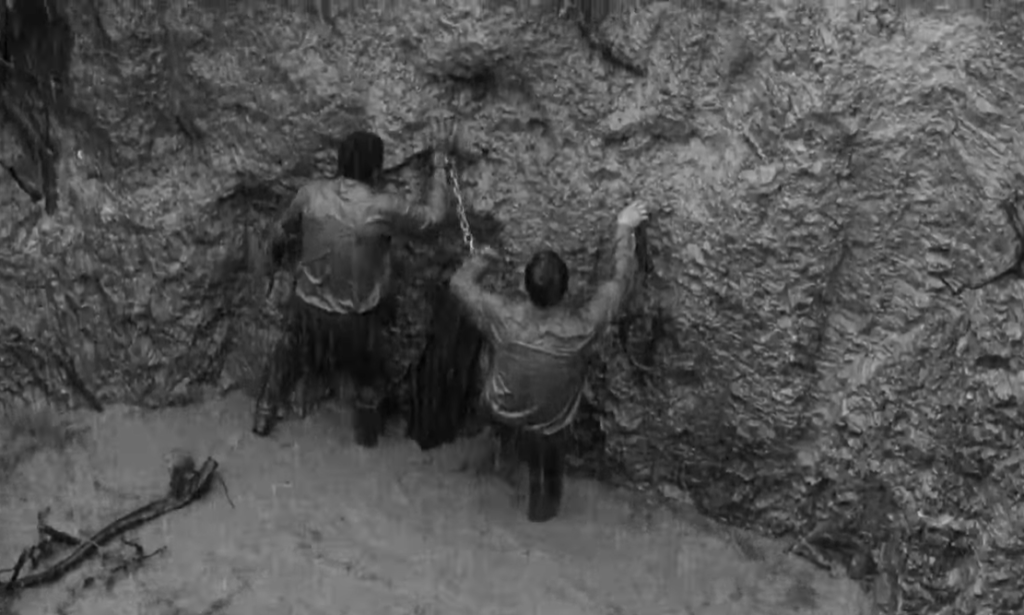
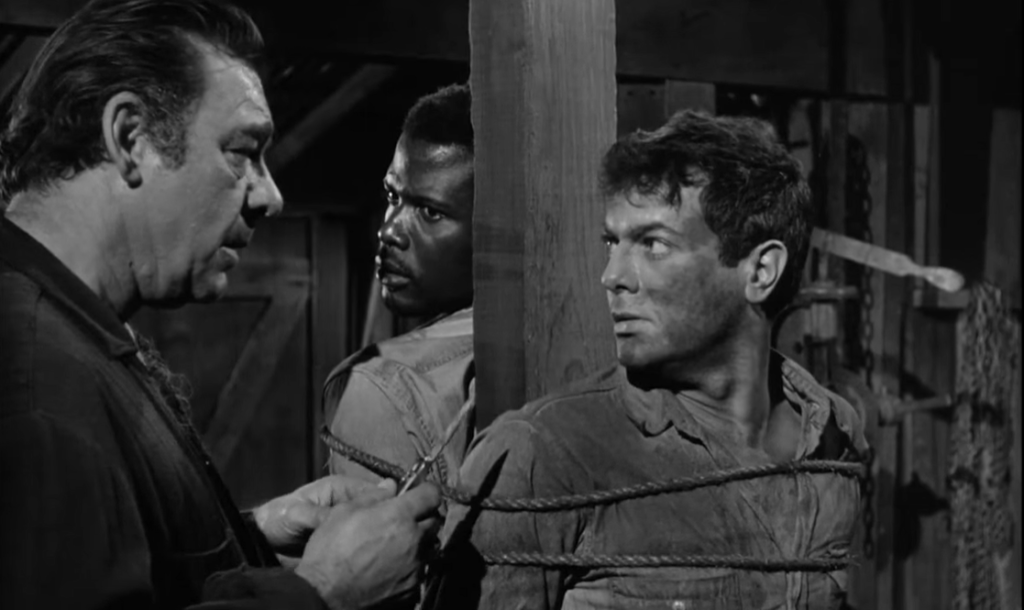
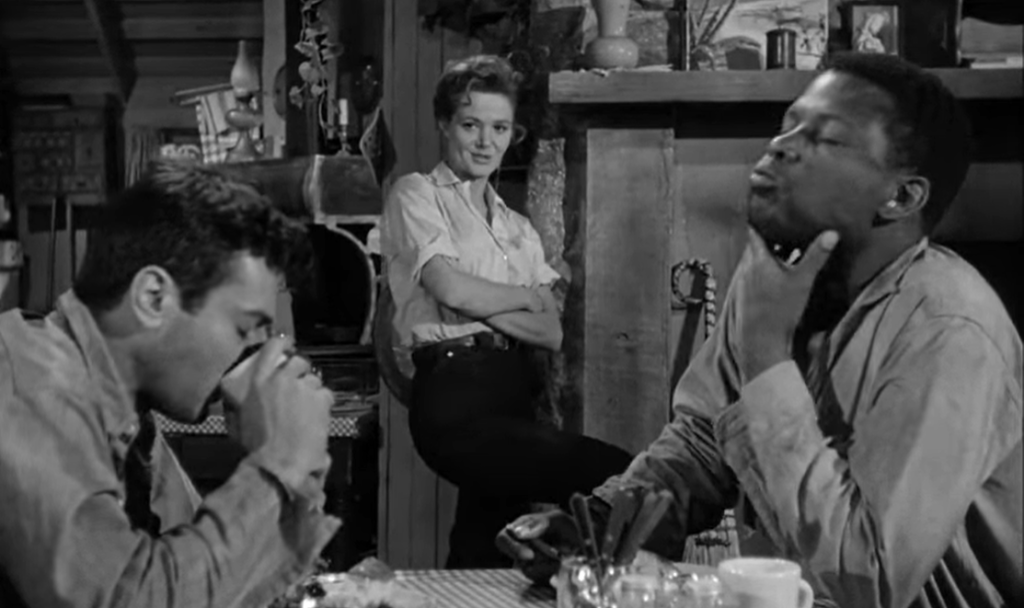
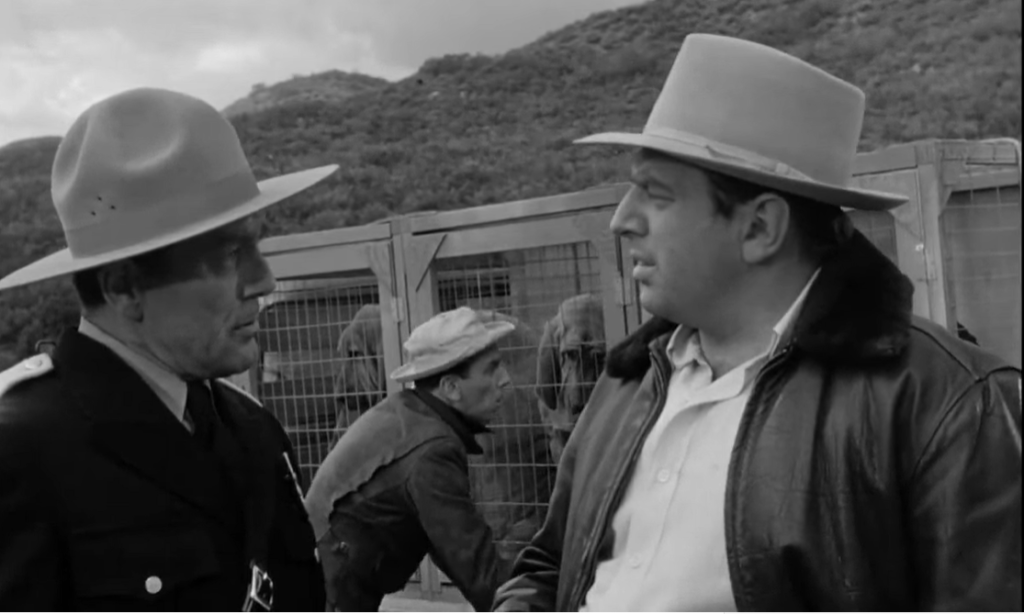
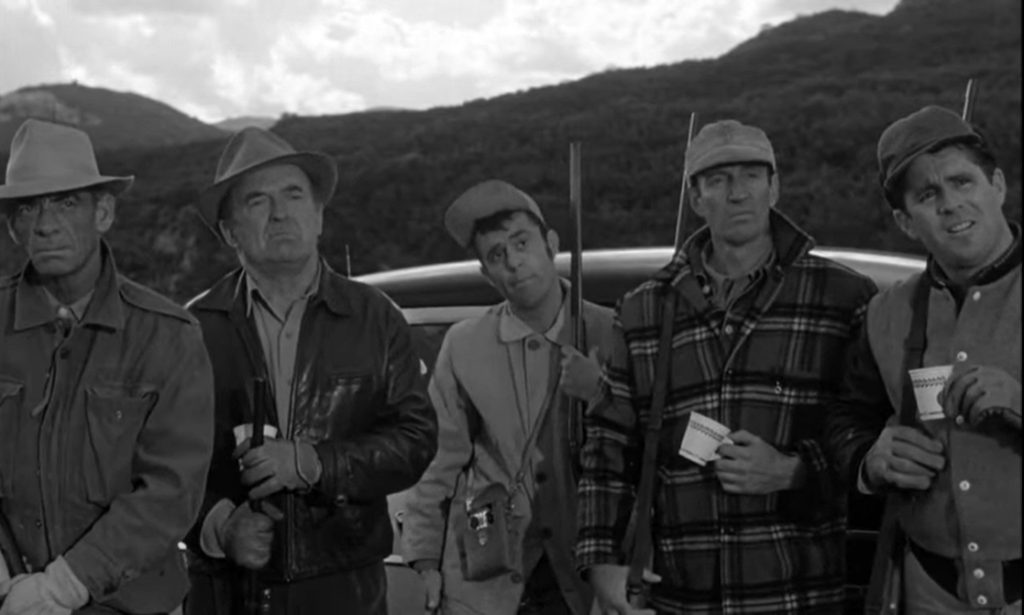
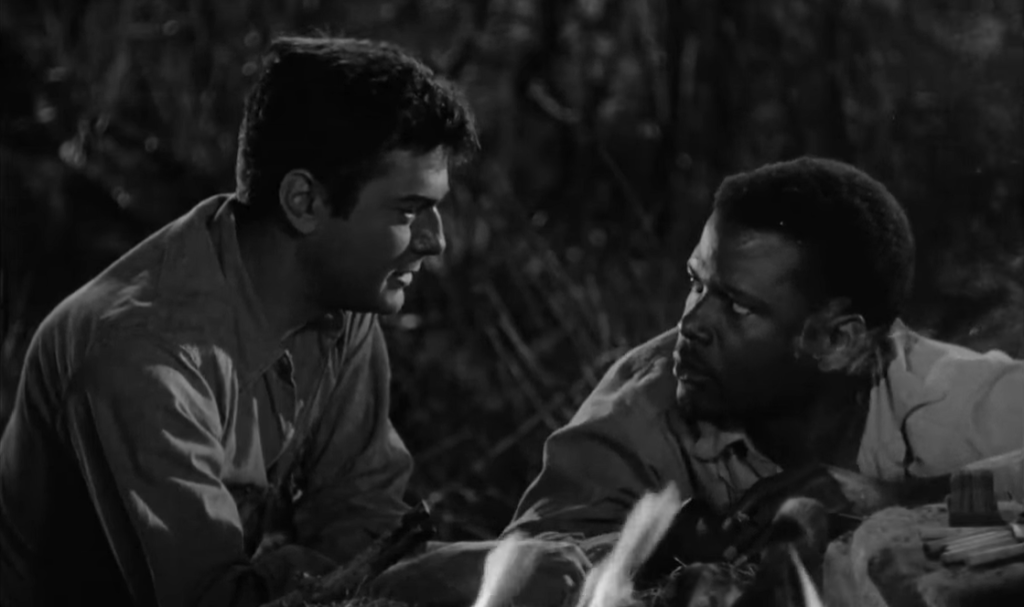
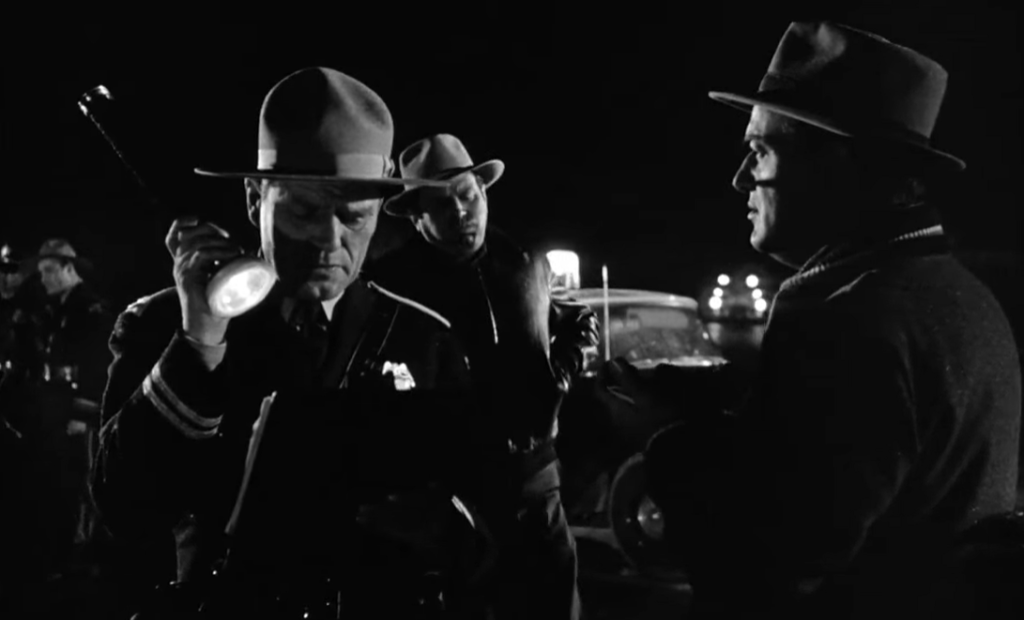
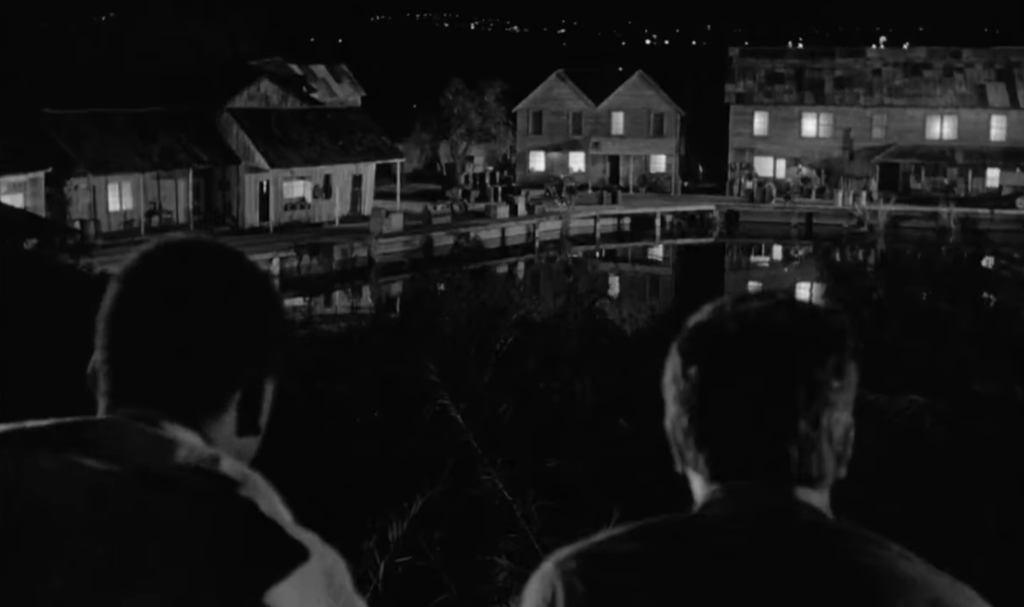
One thought on “Defiant Ones, The (1958)”
(Rewatch 5/27/20). Agreed; must-see as “powerful and historically relevant”. As posted in ‘The ’40s-’50s in Film’ (fb):
“He said not to worry about catchin’ ’em. They probably kill each other ‘fore they go five miles.”
‘The Defiant Ones’ (1958): At the time of the accident that sets them ‘free’, convicts Tony Curtis and Sidney Poitier are chained together – and the built-in tension begins, as well as the suspense: how far will they get?; how long before they start fighting?; will they ultimately get their freedom?
Curtis’ character isn’t actually racist; he’s simply indifferent towards Poitier – and surprised whenever Poitier indicates that he doesn’t know his ‘place’. (I’m not sure it would be as interesting a film if Curtis’ character were racist – maybe because they probably *would* kill each other. As it is, they still come close to that at one point.)
If you pay close attention to Theodore Bikel’s understated performance as the sheriff, you’ll appreciate the conclusion that allows the audience to do some of the work.
The film won Oscars for cinematography and screenplay. Poitier won Best Actor at BAFTA and the Berlin International Film Festival.